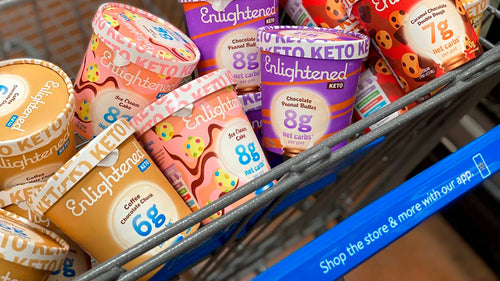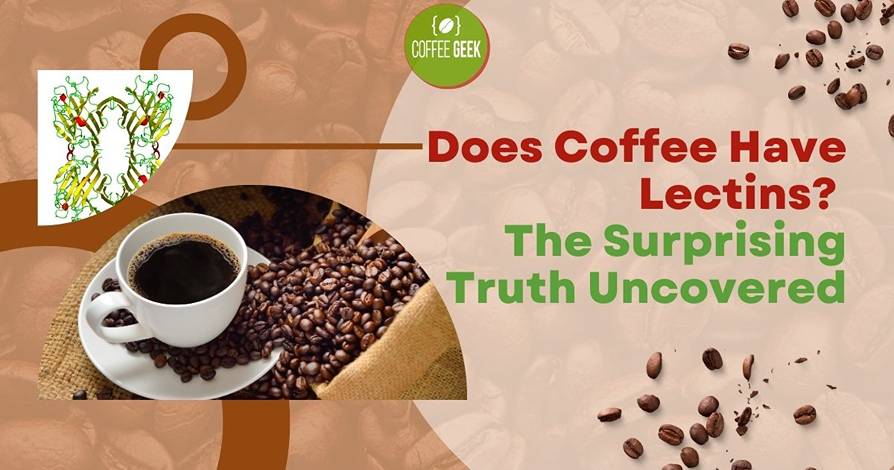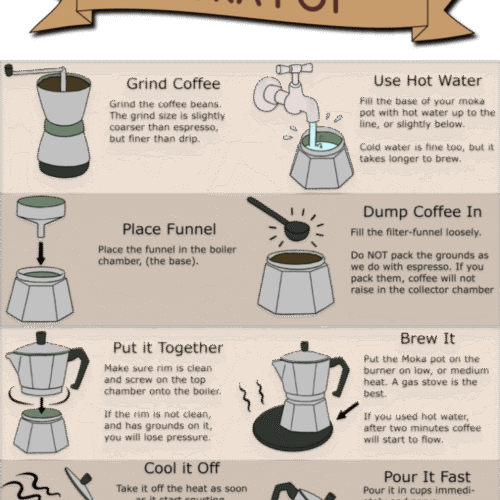Coffee does not contain any carbs. Coffee is a popular beverage consumed by millions of people worldwide.
It is made from roasted coffee beans and is known for its energizing effects. While some people may add sweeteners or milk to their coffee, the drink itself, in its purest form, contains no carbohydrates. This makes coffee a great choice for those following a low-carb or ketogenic diet.
In addition to being carb-free, coffee also offers various health benefits, such as boosting mental alertness, improving mood, and increasing metabolism. So, if you’re watching your carb intake, rest assured that you can enjoy your cup of coffee without worrying about adding any carbs to your daily count.
The Basics Of Coffee And Carbohydrates
Are you a coffee lover who’s watching their carbohydrate intake? You may be wondering, does coffee have carbs?
Coffee’s Composition And Macronutrients
To understand whether coffee contains carbs, it’s important to grasp the composition of this beloved beverage. Coffee is primarily made up of water, around 98%. The remaining 2% is comprised of various compounds, including macronutrients such as carbohydrates, proteins, and fats.
Carbohydrates are a crucial energy source for our bodies, but their presence in coffee is minimal. In fact, a standard cup of black coffee typically contains no more than 1 gram of carbohydrates, making it virtually carb-free. However, it’s worth noting that this value may slightly increase if you add milk, cream, sugar, or other flavorings to your brew.
Understanding Carbohydrates And Their Role In The Diet
To fully appreciate the impact of carbohydrates in our diet, it’s important to grasp their role. Carbohydrates are one of the three macronutrients, alongside proteins and fats, and they provide our bodies with energy. They are categorized into two main types: simple and complex.
Simple carbohydrates, also known as sugars, are found in foods like fruits, candies, and sweetened beverages. They are rapidly digested, resulting in quick energy bursts. On the other hand, complex carbohydrates, found in foods like whole grains, legumes, and vegetables, take longer to digest, providing a more sustained energy release.
A well-balanced diet should include a variety of carbohydrates, mainly from complex sources. While coffee plays a minimal role in carbohydrate intake, it is important to be mindful of the other sources in your diet to ensure you are getting an adequate amount.
In conclusion, coffee is typically low in carbohydrates, with a standard cup containing about 1 gram or less. However, it’s essential to pay attention to the additives you may include in your coffee, as these can significantly increase the carb content. By understanding the basics of coffee and carbohydrates, you can make informed choices that align with your dietary goals.
Debunking Common Myths About Carbs In Coffee
Coffee lovers often wonder if their favorite beverage contains carbs. In reality, coffee is virtually carb-free, debunking the common myth that it contributes to carbohydrate intake. Enjoy your cup of joe guilt-free!
Exploring Popular Misconceptions
When it comes to watching our carbohydrate intake, we often question whether our favorite beverages and foods contain hidden carbs. Coffee, being a popular beverage consumed by millions of people around the world, is not exempt from this scrutiny. It has sparked numerous debates and rumors regarding its carb content. In this article, we will debunk some common myths about carbs in coffee to help you make informed decisions about your caffeine fix.
Clarifying The Truth Behind Carb Content In Coffee
There are a few popular misconceptions when it comes to the carb content in coffee. Let’s take a closer look at these misconceptions and clarify the truth:
Myth 1: Coffee Is Carb-free
Contrary to popular belief, coffee does have a negligible amount of carbs. A plain black coffee, brewed from ground coffee beans and filtered water, contains approximately 0.2 grams of carbohydrates per cup. However, this amount is so minimal that it is practically considered carb-free. So, you can safely enjoy your black coffee without worrying about it sabotaging your low-carb diet.
Myth 2: Added Ingredients Increase Carb Content
While black coffee remains low in carbs, the story changes when you start adding ingredients like milk, sugar, flavored syrups, or whipped cream to your cup of joe. These additions can significantly increase the carb content of your coffee. For example, a typical cup of coffee with a splash of milk and a teaspoon of sugar can contribute around 6 grams of carbohydrates. It’s essential to be mindful of the extras that go into your coffee if you’re watching your carb intake.
Myth 3: Decaffeinated Coffee Is Carb-free
Coffee lovers often turn to decaffeinated options to limit their caffeine intake. However, decaffeinated coffee is not entirely carb-free. The decaffeination process may involve a minimal loss of carbohydrates, but it still contains trace amounts of carbs. However, just like regular coffee, the carb content in decaffeinated coffee is insignificant and should not be a concern for those following a low-carb diet.
In conclusion, coffee, when consumed black and in moderation, is virtually carb-free. However, be cautious of added ingredients that can increase the carb content and compromise your low-carb goals. By understanding the truth behind common myths about carbs in coffee, you can enjoy your favorite cup of joe without worrying about derailing your diet plan.
The Impact Of Preparation Methods On Carb Content
When it comes to enjoying a cup of coffee, many people wonder if their beloved beverage contains any carbs. While coffee beans themselves are low in carbs, the method of preparation can impact the carb content of your cup of joe. In this article, we’ll examine the influence of brewing techniques on carb content, focusing on the differences between brewed, instant, and specialty coffee.
Influence Of Brewing Techniques On Carbs
Brewing techniques play a significant role in determining the carb content of your coffee. Let’s take a closer look at the differences between brewed, instant, and specialty coffee:
Examining The Differences Between Brewed, Instant, And Specialty Coffee
Brewed coffee: Brewed coffee is often prepared by grinding coffee beans and extracting the flavors by pouring hot water over the grounds. This traditional method of brewing yields a rich and aromatic cup of coffee. When it comes to carbs, brewed coffee contains negligible amounts. Because most of the coffee grounds are filtered out during brewing, the final cup of coffee is carb-free.
Instant coffee: Instant coffee, as the name suggests, is made by brewing coffee and then dehydrating it to create a concentrated coffee powder. This powder can be rehydrated with hot water to make a quick and convenient cup of coffee. In terms of carb content, instant coffee typically contains trace amounts of carbs. The exact amount can vary depending on the brand and any additives present.
Specialty coffee: Specialty coffee refers to high-quality coffee made from carefully selected and roasted beans. These beans are often sourced from specific regions and are known for their unique flavors and characteristics. While the carb content of specialty coffee can also be minimal like brewed coffee, it’s essential to note that certain specialty coffee drinks, such as flavored lattes or mochas, may contain carbohydrates due to the addition of milk or sweeteners.
It’s worth noting that the carb content of coffee is relatively minimal compared to other beverages and should not be a significant concern for most individuals. However, if you are following a low-carb or ketogenic diet and counting every gram of carbs, it’s important to consider the brewing method and any additives used to prepare your coffee. As always, moderation is key, so enjoy your coffee in a way that suits your dietary needs and preferences.
Unveiling Hidden Sources Of Carbs In Coffee
When it comes to watching our carbohydrate intake, many of us tend to forget about the hidden sources that may be lurking in our daily cup of coffee. Yes, that’s right – even our beloved morning brew can contain carbs. In this blog post, we will delve into the world of hidden carbs in coffee and uncover the sources you might not have considered. Let’s start by identifying potential additives and sweeteners that can contribute to your daily carb count.
Identifying Potential Additives And Sweeteners
Coffee is often more than just coffee. Many people enjoy adding flavorings, milk, cream, or sweeteners to enhance their cup of Joe. But what you might not realize is that these additions can contain carbs that could impact your low-carb diet. Here are some common sources to watch out for:
- Flavored syrups: Popular flavored syrups like vanilla, caramel, or hazelnut can add a burst of sweetness to your coffee. However, these syrups are often high in added sugars and can contribute to your daily carb intake. It’s essential to read the labels or ask your barista about the carb content of the flavored syrups they use.
- Creamers and milk alternatives: If you prefer a creamy texture in your coffee, it’s crucial to be mindful of the carb content in creamers and milk alternatives. Some creamers may contain added sugars or other carbohydrates to enhance the taste. Milk alternatives like almond milk or oat milk can also have varying amounts of carbs. It’s advisable to opt for unsweetened versions or check the nutritional information to make an informed choice.
- Artificial sweeteners: For those watching their sugar intake, artificial sweeteners might seem like a go-to option. However, it’s worth noting that some sweeteners, such as maltodextrin or dextrose, can contain carbs. These hidden carbs can lurk in your zero-calorie sweetener packets, impacting your carb count. Make sure to check the packaging for any carb content information before using them in your coffee.
- Flavored creamers: Flavored creamers are a popular choice to add a touch of sweetness and creaminess to your coffee without the need for additional sweeteners. However, most flavored creamers are created using sugary ingredients, which adds carbohydrates to your daily intake. If you’re watching your carb intake, it’s important to be mindful of these hidden carbs and consider alternatives like sugar-free, low-carb options.
Understanding The Impact Of Flavored Coffee Options
Flavored coffee options can be a delightful treat, but they can also contribute to your carb count. When enjoying flavored coffee, such as vanilla, chocolate, or mocha, it’s crucial to be aware of the potential hidden carbohydrates that may come along with the flavor. These flavored coffees may contain added sugars, syrups, or even powdered mixes that can increase your carb intake. Checking the nutritional information or asking your coffee shop about the carb content can help you make a more informed choice.
While coffee itself is known to be relatively low in carbs, it’s important to remember that the hidden sources can add up quickly. By being mindful of the potential additives and sweeteners in your coffee, you can make more informed choices that align with your low-carb lifestyle. So, next time you reach for that cup of Joe, take a moment to consider the hidden carbs that could be hiding within.
Determining The Carb Content Of Different Coffee Drinks
Coffee enthusiasts often wonder about the carb content of different coffee drinks. Are they really carb-free? Discover the truth behind the carb content in your favorite coffee beverages.
Determining the Carb Content of Different Coffee Drinks
Analyzing the Carb Content of Common Coffee Beverages
When it comes to watching our carbohydrate intake, even the simplest of beverages can have a surprising impact. Coffee, the everyday favorite for many, may seem like a safe choice in terms of carbs. However, the reality is that the carb content of coffee can differ significantly depending on how it’s prepared and what ingredients are added. In this section, we will delve into the carb content of different coffee drinks, comparing plain black coffee to popular coffee concoctions. So, let’s unravel the caffeine-laden mystery and find out just how many carbs are lurking in our favorite coffee beverages.
Analyzing The Carb Content Of Common Coffee Beverages
To gain a better understanding of the carb content in different coffee drinks, let’s analyze some common options. Below, you’ll find a breakdown of the carb content for each beverage:
| Coffee Beverage | Carb Content |
|---|---|
| Black Coffee | 0 grams |
| Espresso | 0 grams |
| Americano | 0 grams |
| Cappuccino | < 1 gram |
| Latte | 8 grams (approx.) |
| Mocha | 30 grams (approx.) |
As seen in the table above, black coffee, espresso, and Americano have no carbohydrates, making them ideal choices for those following a low-carb diet. However, if you’re someone who enjoys a creamier and sweeter coffee experience, it’s important to be mindful of the carb content.
Comparing Plain Black Coffee To Popular Coffee Concoctions
When comparing the carb content of plain black coffee to popular coffee concoctions like cappuccinos, lattes, and mochas, the contrast becomes evident. While a cappuccino typically contains less than 1 gram of carbs, a latte can have around 8 grams, primarily due to the milk used. The real culprit on the high-carb front is the mocha, which can pack in around 30 grams of carbs, thanks to its combination of milk, chocolate, and added sugars.
Understanding these differences can help us make informed decisions when ordering our favorite coffee drinks. If you’re looking to minimize your carb intake, sticking to black coffee or opting for unsweetened alternatives like Americanos and espressos may be the way to go. However, for those who can’t resist the allure of a frothy latte or indulgent mocha, be mindful of the carb content and consider making adjustments to your overall diet to accommodate these choices.
Remember, moderation and awareness are key. While coffee may initially seem carb-free, it’s important to acknowledge that the way we prepare and enjoy it can significantly impact its carbohydrate content. So, the next time you head to your favorite coffee shop, choose your beverage wisely, and savor every sip without the guilt or unwanted carb overload.

Credit: eatenlightened.com
Frequently Asked Questions Of Does Coffee Have Carbs
Does Coffee Contain Carbs?
No, pure black coffee does not contain any significant amount of carbs. However, adding milk, sugar, or flavored syrups to your coffee can contribute carbohydrates.
Are There Carbs In A Cup Of Brewed Coffee?
A cup of black coffee typically contains zero carbs. However, if you add milk or sugar, the carb content will increase slightly depending on the quantity used.
Does Coffee With Cream And Sugar Have Carbs?
Yes, coffee with cream and sugar does contain carbs. The exact amount will depend on the quantity of cream and sugar added to your coffee. It’s best to check the nutritional information for the specific products you’re using.
Conclusion
Coffee is a low-carb beverage that can be enjoyed by those watching their carbohydrate intake. With virtually zero carbs, it offers a flavorful and energizing option for coffee enthusiasts. Whether you’re following a low-carb diet or simply curious about your coffee’s carb content, rest assured that your daily cup of joe won’t derail your efforts.
So, sip away and savor your coffee without worrying about the carbs!








